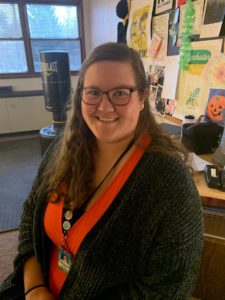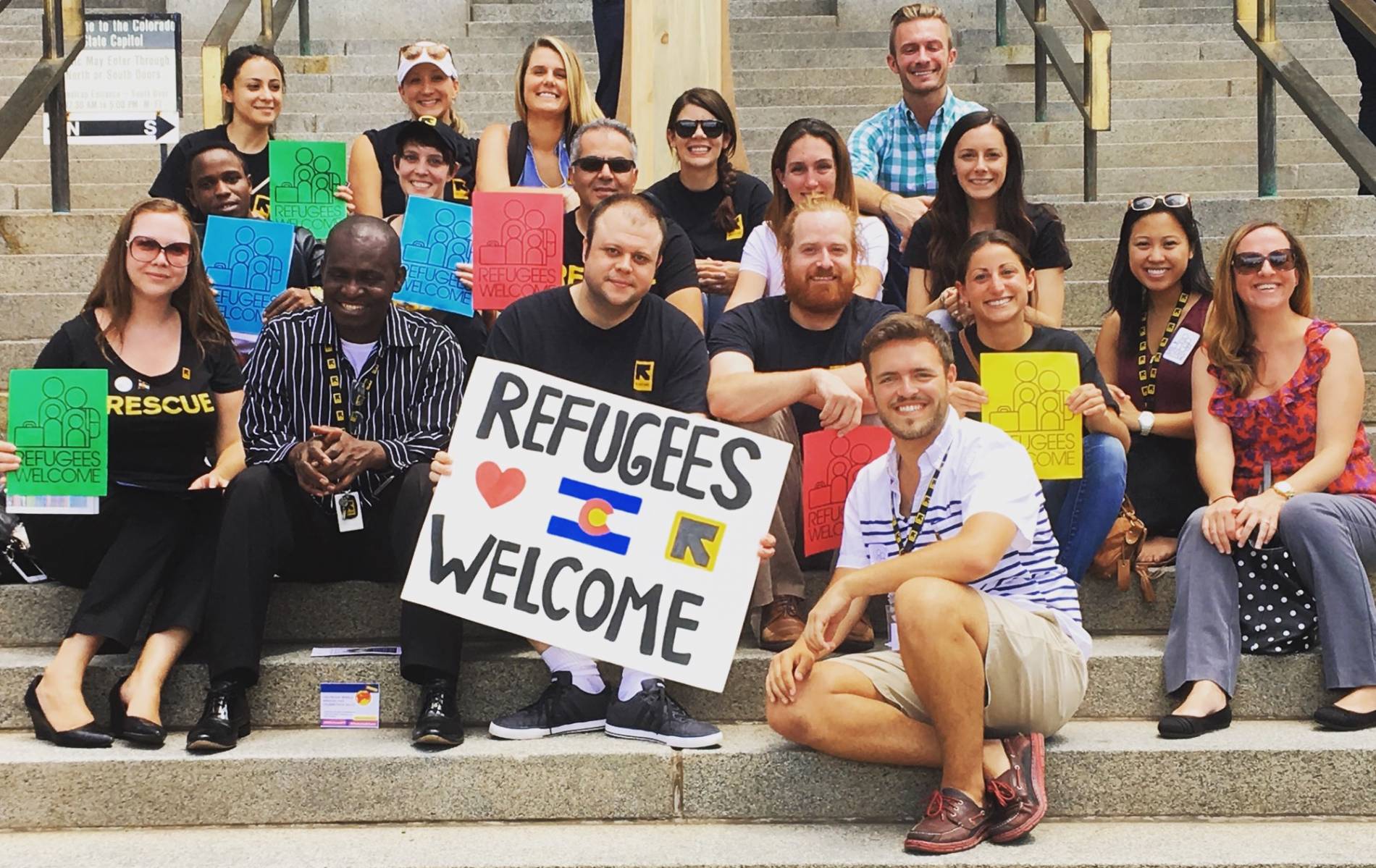Kayla Hasstedt, left, and Ashley Baugh
For public health practitioners, the 12 Grand Challenges for Social Work should feel extremely familiar. They include ensuring healthy development for all youth, ending homelessness, harnessing technology for social good and closing the health gap. The points of intersection and symbiosis between public health and social work are significant.
That’s what Ashley Baugh was looking for. Through her undergraduate studies and career after school, she’d identified the issues most important to her – connection, emotions, stress, sleep, spirituality and social support – and went searching for the path that would allow her to understand how they affect the immune system, overall health and the ability to cope with disease.
Her search led her, in 2016, to a newly created dual-degree program in the Colorado School of Public Health at CSU, designed in partnership with the School of Social Work at CSU. This weekend, she and Kayla Hasstedt will be the first graduates in the Master of Public Health/Master of Social Work dual-degree program.

“We at the School of Social Work couldn’t be more proud of our first MSW-MPH graduates who have spent extra time and effort to earn two master’s degrees,” said Audrey Shillington, director of the School of Social Work. “The profession of social work has developed 12 Grand Challenges that we have set out as professional priorities to improve the health and well-being of vulnerable populations. Those social justice challenges are facing both the social work and the public health fields — social determinants of health and health inequities, climate change, behavioral health, economic inequality, and racial inequities.
“In order for our professions to truly address such daunting and intractable issues, we need to join together for the strength of transdisciplinary, cross-sectoral, collaborative efforts to advance practice, policy and research.”
Finding areas of similarity
For Hasstedt, discovering the dual-degree program was a sort of happy accident. After earning a B.S. in psychology and a B.A. in social work, she accepted a position in an inpatient psychiatric unit at UCHealth Mountain Crest Behavioral Health Center in Fort Collins, with plans for eventually pursuing an MSW degree.
“Most of my work there is direct client care, which is something I really enjoy, and it also helped me to realize I wanted to do more preventative work and also more population-based work,” Hasstedt explained. “This is part of what led my interests to public health and more macro-level social work. I loved the idea of looking at population-based health as well as how so many different aspects of our world interact to make it what it is.”
While researching MSW programs, she happened upon the MPH/MSW dual-degree program. It was the right fit; she said she was especially interested in the emphasis both fields place on addressing mental health and health disparities.
Baugh’s interest in the confluences of the two fields grew from multiple experiences: injuring her back as a young teen and learning about exercise, pain management and wellness; studying massage therapy and learning about the impact of stress on physical health; studying Dr. Brené Brown’s work in emotional healing/security and relational success; and taking a special topics course in emotional health and stress management while earning her second bachelor’s degree in community health education.
Baugh is in the top row, second from left.
“Being able to merge my interests in public/population health and health education, and how the global health and health disparities concentration is built into the dual program, is what drew me to [the dual-degree program],” Ashley explained, adding that she appreciated the points of connection she found “with the mental/emotional/social support aspects of social work and their person-in-environment approach.”
Hands-on approach
The dual degree, which can be completed in two or three years depending on a student’s experience, includes significant hands-on training and yearlong internship requirements. This allowed Hasstedt an immersive experience at Jefferson Junior High School in Greeley, and Baugh experiences with the International Rescue Committee, doing refugee resettlement support, and the Jefferson County Public Health Department, coordinating volunteer management for emergency medication points of dispensing programs, among other experiences.
After graduating, Hasstedt said she hopes to pursue work in program evaluation and working in adolescent mental health. Baugh said she plans to pursue interests in wellness as well as global health and working with refugee populations. Both said that studying in the dual-degree program gave them a more broad-based understanding of community and population health, and of the necessity for interdisciplinary sharing.
“Social work combined with public health provides a wonderful opportunity to train professionals with overlapping skill sets that will contribute to health and well-being in a meaningful way,” said Lorann Stallones, director of the ColoradoSPH at CSU.
Shillington noted, “These graduates will be leaders in the field, blending the theory and research of both disciplines to improve people’s health and well-being.”
Click here to learn more about the MPH/MSW dual degree offered at Colorado State University.

